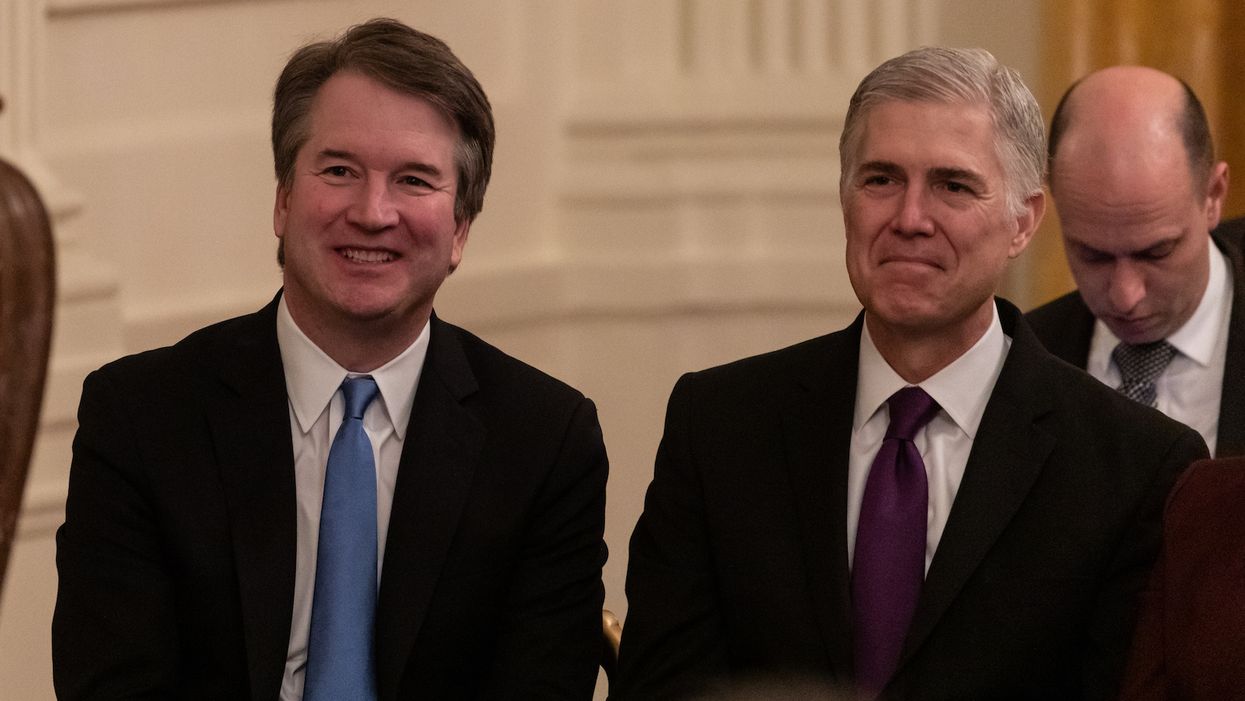
Supreme Court Justices Brett Kavanaugh (L) and Neil Gorsuch (R). (Cheriss May/NurPhoto via Getty Images)

'...a vague law is no law at all'
Conservative Supreme Court Justice Neil Gorsuch sided with the liberal members of the court Monday in ruling that a federal gun violence law was too vague to be constitutional, according to The Hill.
What was the law? The law in question imposed mandatory minimum sentences for crimes of violence involving guns. The minimum sentences under the law become more severe if the gun is brandished or fired, and depending on what type of gun is used during the crime.
Why is the Supreme Court dealing with this? Maurice Davis and Andre Glover were convicted on felony robbery charges, and also under the federal law in question. Because they brandished short-barreled shotguns in their crimes, their minimum sentences jumped up to 35 years. Glover was sentenced to 41 years, and Davis to more than 50. They challenged their sentences on the basis that the federal law was too vague.
Why did Gorsuch take the side he took? Gorsuch wrote in his opinion that the law did not sufficiently define a "crime of violence," and for the Supreme Court to uphold such a law would cause the judicial brach to overstep its bounds.
"In our constitutional order, a vague law is no law at all," Gorsuch wrote. "Only the people's elected representatives in Congress have the power to write new federal criminal laws. And when Congress exercises that power, it has to write statutes that give ordinary people fair warning about what the law demands of them. Vague laws transgress both of those constitutional requirements."
What's the other side of this argument? Justice Brett Kavanaugh wrote in the dissenting opinion that the law helped reduce gun violence in America, and cited concerns about the ruling leading to the early release of potentially dangerous convicted criminals. He also pointed out that numerous other laws don't specifically define a type of crime, leaving it up to courts to decide if they apply.
"A decision to strike down a 33-year-old, often-prosecuted federal criminal law because it is all of a sudden unconstitutionally vague is an extraordinary event in this court," Kavanaugh wrote.